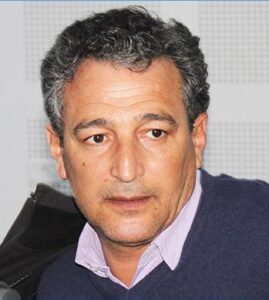EDITORIAL BOARD
CHIEF – EDITOR
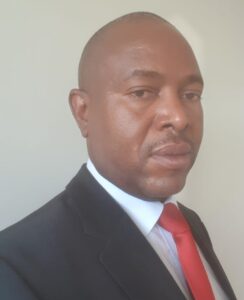
Prof. Jonathan M. Nzuma
University of Nairobi (UON)
Nairobi, Kenya
Dr. Jonathan Nzuma is a Senior lecturer at the Department of Agricultural Economics, University of Nairobi, where he specializes in Agricultural Trade Policy, Commodity Markets, Rural Development, and Impact Evaluations. He has a Ph.D. in Agricultural Economics and Business from the University of Guelph, Canada, and an MSc and BSc from the University of Nairobi, Kenya. Dr. Nzuma has a wide-spanning experience in agricultural research and development has been a faculty member since 2002 where he has supervised several masters and Ph.D. students successfully and won numerous academic awards and research grants. His research interests include analysis of agricultural policies, consumer demand analysis, price transmission analysis, impact evaluations, food security and agricultural technology transfer, social networks, and gender empowerment dividends. To keep abreast of cutting-edge developments in Agricultural Economics, Dr. Nzuma is a member of the International Association Agricultural Economics (IAAE), and the African Association of Agricultural Economics (AAAE). His strong academic experience is coupled with a vast out-of-class experience having worked for The World Bank, the Food and Agriculture Organization of the United Nations (FAO), the World Food Programme (WFP), and the International Food Policy Research Institute (IFPRI). He is well-traveled within Sub-Saharan Africa, Europe, and North America making him conversant with the diverse agricultural systems around the world. This puts him on the frontline in putting agricultural research into perspective.
CO-EDITOR

Dr. Camillus A. Wongnaa
Kwame Nkrumah University of Science and Technology (KNUST)
Kumasi, Ghana
Dr. Camillus Abawiera Wongnaa had his education at Kwame Nkrumah University of Science and Technology (KNUST), Kumasi, Ghana (BSc. Agriculture and PhD. Agricultural Economics), University of Ghana, Legon (MPhil. Agricultural Economics) and University of Education, Winneba, Ghana (Diploma in Education). With over nineteen (19) years of teaching experience in Ghana, Camillus has taught at the Primary, Junior High, Senior High, and Tertiary school levels. He is currently a lecturer at the Department of Agricultural Economics, Agribusiness, and Extension of KNUST. Before joining KNUST in August 2016, he had worked for five (5) years as a Lecturer and later a Senior Lecturer and a Head of Department of Agropreneurship of Kumasi Technical University, a department he established. Camillus was a member of the consulting team that executed the End of Project Evaluation of the Sorghum Value Chain Project in Ghana. He was a co-consultant in a Needs Assessment of Poultry Associations in Ghana Project for the Ghana Poultry Project (GPP). He was also one of the consultants in the Impact Study of Root Capital’s Agricultural Enterprises that link smallholder farmers to markets in Ghana and Cote D’Ivoire where he served as an Agricultural Economist. Currently, Camillus is KNUST’s Principal Investigator (PI) in a United Nations University (UNU)’s project on the Promotion of Knowledge Exchange, Creation and Sharing between Africa and Asia in support of Africa’s Sustainable Development. Dr. Wongnaa has published over 25 peer-reviewed journal articles and two book chapters. His research areas are production economics, productivity and efficiency analysis, food security, rural livelihood as well as climate change and agriculture.
CO-EDITOR
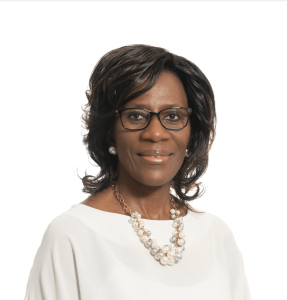
Dr. Selma Karuaihe
University of Pretoria
South Africa
Selma Karuaihe is a Senior Lecturer and Past Acting Head of Department, in the Department of Agricultural Economics, Extension and Rural Development, University of Pretoria (UP). She is the Past President of the Association of Environmental and Resource Economists (AFAERE – https://afaere.org/) and previous Associate Coordinator of the South African SDG Hub at UP. She is a resource and environmental economist with a vast, teaching, research and consultancy experience, performed at different institutions and in different capacities around the world. Selma’s professional career involves visiting lectureship at the University of Applied Sciences, Schmalkalden, Germany; Head of Economics Department at the University of Namibia (UNAM); member of the Academic Board of the African Economic Research Consortium (AERC); Senior Economist at the Department of Economic Development, City of Johannesburg; Senior Research Manager at the Human Sciences Research Council (HSRC); and Visiting Lecturer of the Collaborative Masters Program in Applied Agricultural Economics (CMAAE) coordinated by the AERC. Her interest is in development and issues arising from utilisation of natural and environmental resources for sustainable development. She holds a PhD from Washington State University (WSU), US.
CO-EDITOR FRENCH
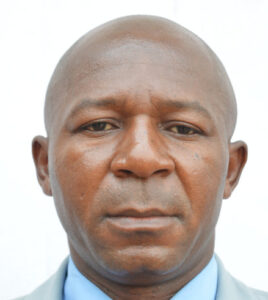
Dr. Cyrille B. Kamdem
University of Yaoundé II
Yaoundé, Cameroon
Prof Cyrille KAMDEM is an Agricultural Economist and Associate Professor in the Department of Public Economics, University of Yaoundé II, Cameroon with 14 years of teaching experience. His research interests include, Agricultural Marketing/Commercialization, Agricultural production analysis, Food Security Analysis, Sustainable Development Economics, Value Chain Analysis and Poverty Analysis. He has a Ph.D. and MSc. in Agricultural Economics from the University of Yaoundé II, Cameroon.
Prof Cyrille KAMDEM has expertise in choice modelling, time series analysis, limited dependent variable analysis and, Impact Evaluation Analysis. He has published 25 articles in peer-reviewed journals, 2 book chapters, 5 discussion papers, and 2 policy briefs. He has also supervised over 40 postgraduate students at MSc. and Ph.D. levels, and serves as an external examiner for various universities across Africa.
Prof Cyrille KAMDEM has more than ten (10) years’ experience combining policy oriented research, socio-economics, monitoring impact and evaluation analysis, markets and production systems, climate change, natural resources and sustainable development in Africa that gained from national and international organizations such as Proforest (palm oil investment case study, Cameroon); WWF-Gabon (Analyse du modèle de coopérative agricole proposé par le programme Graine); SNV (Cooperatives baseline survey in Cameroon on the project “Golden Cocoa Project (CGCP)”); United Nations Economic Commission for Africa (Exploiter le potentiel de l’agro-industrie pour soutenir la transformation structurelle en Afrique centrale); the International Institute of Tropical Agriculture (Baseline survey in Cameroon on the project: “accelerating innovative and sustainable cassava business models for women and youth in central africa” – manioc21); Programme National du Développement Participatif (PNDP) (Evaluation de la mise en œuvre du Financement Banque Mondiale); Projet d’Investissement et de Développement des Marches Agricoles (PIDMA) du Cameroun (Etude de positionnement stratégique sur les trois chaînes de valeur ciblées par le projet d’investissement et développement marches agricoles du Cameroun), African Development Bank (IDEV consultants and participating in Regional Integration Strategic Framework (RISF), 2018-2025 Evaluation; Management Action Record System (MARS) 2024 Evaluation.
EDITORIAL BOARD MEMBERS

Dr. Amos Mensah
Dr Amos Mensah is a Senior Lecturer at the Department of Agricultural Economics, Agribusiness, and Extension at Kwame Nkrumah University of Science and Technology (KNUST). With over five years of experience as a university lecturer, Dr Amos has developed a deep expertise in Agricultural Value Chains, Water and Food Security, Agricultural Marketing, Land Tenure Systems, and Rural Development. His academic journey has positioned him as a key contributor to addressing critical challenges in agricultural development and sustainability.
In his research, Dr Amos employs advanced modeling techniques such as Treatment Effect Models, Structural Equation Models, Efficiency and Productivity Analysis, and Generalized Linear Models to analyze complex data and uncover actionable insights. His work is widely recognized, having authored 35 peer-reviewed journal articles and an additional 55 newsletters and blog posts that highlight key trends and developments in his areas of expertise.
Through his contributions to academia and the broader agricultural economics, Dr Amos continues to influence the future of agricultural development, offering solutions to enhance productivity, improve food security, and support sustainable rural development.

Dr. Edgar E. Twine
Dr Edgar Twine is an Associate Principal Scientist at the Africa Rice Center and the Center’s Country Representative in Uganda. He has worked for the CGIAR for over 10 years and was previously a Post-Doctoral Fellow and Scientist at the International Livestock Research Institute. He currently serves on the Editorial Board of the Journal of Agricultural and Applied Economics. His expertise and research interests are in the areas of production economics, marketing economics, agricultural finance, and policy. He has over 30 publications and has reviewed for several international peer-reviewed journals. He has also worked as a consultant for several local and international research and development organizations. Edgar obtained his PhD in Agricultural and Resource Economics from the University of Alberta.
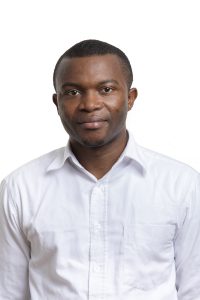
Dr Enoch Owusu-Sekyere
Dr Enoch Owusu-Sekyere is a Senior Researcher and Lecturer at the Department of Economics, Swedish University of Agricultural Sciences, Uppsala, Sweden and Department of Agricultural Economics, Extension and Rural Development, University of Pretoria, South Africa. He has a prolific academic record, having published over 40 peer-reviewed scientific articles. His research spans critical areas such as Animal Health and Welfare Economics, Choice Modelling, and the Circular Economy, with a strong focus on creating impactful solutions for the agricultural and food sectors.
Dr Enoch’s expertise includes Econometric Modelling, Farm Management and Decision Making, Food Policy, Food Security, and Impact Evaluation. His work also delves into cutting-edge areas like Technology Adoption, Precision Farming, and consumer behaviour, particularly around Willingness to Pay for agricultural innovations. Through his in-depth research, he seeks to address global challenges such as food security and sustainable farming practices. His contributions to the academic community continue to shape policies and practices aimed at improving farm efficiency, enhancing technology use, and fostering resilience in food systems.
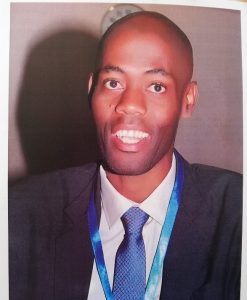
Dr Sotja G. Dlamini
Dr. Sotja G. Dlamini has served as a Senior Lecturer and Head of the Department of Agricultural Economics and Management at the University of Eswatini since 2011. Before joining the University of Eswatini, Dr. Dlamini worked as an economist for the Swaziland Government, under the Ministry of Economic Planning and Development, where he was attached to the Ministry of Natural Resources and Energy.
Dr. Dlamini’s research spans a broad range of topics, including Impact Evaluation, International Economics Modeling, Agricultural Development Policy, Econometric Modeling, and Applied Micro-Econometrics. His work contributes to the advancement of economic strategies aimed at fostering agricultural development and resource management in Eswatini and beyond.
He holds a Ph.D. in Agricultural and Resource Economics from the Lilongwe University of Agriculture and Natural Resources in Malawi, along with an MSc in Agricultural & Applied Economics and a Bachelor of Science in Agricultural Economics from the University of Swaziland. His extensive academic background and practical experience position him as a key figure in shaping agricultural economics policies in the region.
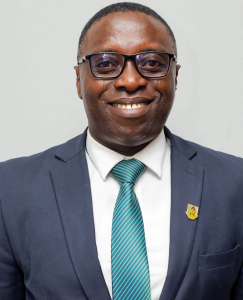
Dr. Bright Owusu Asante
Dr. Bright Owusu Asante is a Senior Lecturer at Kwame Nkrumah University of Science and Technology (KNUST) with over 15 years of experience in agricultural economics and development projects. He holds a PhD. Agricultural and Resource Economics degree from the University of New England, Australia; an MPhil. Agricultural Economics degree from the University of Ghana, Legon; and a BSc. Agriculture (Agricultural Economics option) degree from KNUST. He specializes in areas like impact evaluation, productivity and efficiency analysis, applied econometrics, agribusiness management, and the economics of climate change, with a focus on how farmers adopt new agricultural technologies.
Dr. Asante’s research mainly explores how different agricultural and technological interventions affect farming outcomes and the well-being of smallholder farmers. He employs a range of advanced modelling techniques, including impact evaluation, productivity and efficiency analyses, panel data analysis, and other applied econometric methods. With over 70 peer-reviewed publications, Dr. Asante is recognized for his contribution in agricultural economics, particularly in the context of rural development and agricultural productivity. Before joining KNUST in August, 2020, He had worked for ten (10) years at the CSIR – Crops Research Institute as a Research Scientist and later a Senior Research Scientist, where he worked on several agricultural development projects in Ghana and Africa with international collaborations.
He is an alumnus of the Gender-Responsive Researchers Equipped for Agriculture Transformation (GREAT) in Africa, an advocacy group for gender-responsive research in Africa. Dr. Asante has consulted for a number of local and international organizations including the Alliance for Green Revolution in Africa (AGRA), the Skills Development Fund (SDF), Forum for Agricultural Research in Africa (FARA), Bill and Melinda Gates Foundation (BMGF), Korea-Africa Food and Agriculture Cooperation Initiative (KAFACI), USAID, The West African Seed Alliance, and Natural Resources Institute (NRI), UK. Dr. Asante is an Associate Editor for the Ghana Journal of Agricultural Economics and Agribusiness (GJAEA).

Dr. Clement Kweku Kyei, Ph.D.
Dr. Clement K. Kyei is a research fellow at the Economic and Social Research Institute (ESRI) in Dublin and an adjunct lecturer at the Department of Economics at Trinity College Dublin. His research and publications mainly focus on the economic and distributional impacts of water, food, and climate change policies. He also has an interest in financial econometrics and has published extensively on the role of uncertainty and nonlinear dynamics in financial markets. He holds a PhD in agricultural economics with a specialization in environmental economics from the University of Pretoria.

Dr. Eric S. Owusu, Ph.D.
Dr. Eric S. Owusu is a Postdoctoral Associate at the Joint Institute for Food Safety and Applied Nutrition (JIFSAN) at the University of Maryland. He specializes in Production, Resource, and Development Economics, with a research focus on the productivity and efficiency impacts of farm management practices, agricultural resource use, and the adoption and impacts of digital innovations in agriculture. His work also examines the effects of food safety training on growers’ compliance capacity and farm performance, contributing to enhanced agricultural practices and more resilient food systems.
Dr. Owusu earned his Ph.D. and M.Sc. in Applied and Resource Economics from the University of Connecticut, USA, an M.Phil. in Agricultural Economics from the University of Ghana, and a B.Sc. in Agriculture (Economics major) from the Kwame Nkrumah University of Science and Technology, Ghana. He has experience working with national and international research institutions, applying innovative methodologies to analyze producer decision-making and consumer behavior.
An accomplished scholar, Dr. Owusu has published in reputable journals, emphasizing methodological rigor and impactful visualization. With a strong foundation in data science, he is committed to advancing sustainable farming practices and improving resource efficiency through innovative, data-driven approaches.

Dr. Godwin Kofi Vondolia (PhD)
Dr. Godwin Vondolia is a Senior Lecturer at the Department of Applied Economics, School of Economics, University of Cape Coast in Ghana. He has over 20 years of experience in Environmental and Resource Economics, specializing in environmental valuation, bio-economic modeling, and a range of econometric approaches. His work involves conducting cost-benefit analyses to assess the economic impacts of environmental policies and resource management strategies, and developing micro-economic models to inform natural resource management. With over 30 publications to their name, he has made significant contributions to the field, using rigorous quantitative methods to inform policy decisions and improve environmental and resource sustainability and economic development.

Dr. Herbert Ntuli
Dr. Herbert Ntuli is a Senior Lecturer with a rich academic and research background in community-based wildlife conservation, common pool resource institutions, and integrated water resources management. His expertise also spans forestry, environmental valuation, natural resource modeling, land-use, and land tenure security, as well as land governance.
Dr. Ntuli’s research focuses on addressing pressing environmental and resource management challenges, with a strong emphasis on climate change, climate finance, and energy transitions. His interdisciplinary approach helps to bridge the gap between sustainable development, resource conservation, and governance, making him a key voice in the field of environmental economics.

Dr. Martin Julius Chegere
Dr. Martin J. Chegere is a senior lecturer at the School of Economics, University of Dar es Salaam (UDSM). He is also a Research Fellow at the Environment for Development Initiative (Tanzania) and the Centre for Behavioural Studies at the University of Dar es Salaam. He is among the founding members and was the first Coordinator of the Centre for Behavioural Studies. Since June 2023, he has been the Head of the Department of Applied Economics at the School of Economics, University of Dar es Salaam.
His areas of research interest include development economics, natural resources management and utilization, behavioural and experimental economics, impact evaluation, and agricultural economics. His current research focuses on the economics of food and nutrition, the impact of policies and household characteristics on children’s nutrition and education, agribusiness and business environment, impact evaluation, and the integration of research with Behavioural Insights.
Martin has published more than 20 academic papers in reputable journals including Food Policy, Journal of Development Economics, World Development, Economic Development and Cultural Change, Review of Development Economics, and Food Security. He has won several research grants from SIDA, DFID, NORAD, and the Bill and Melinda Gates Foundation. He has been a consultant in various assignments of the government’s ministries and departments, and other organizations including the World Bank, Alliance for Green Revolution in Africa, Forest Development Trust, and Economic and Social Research Foundation.

Dr. Mavis Boimah
Dr. Mavis Boimah is an accomplished researcher with 8 years of experience in sustainable agriculture, the green economy, and agribusiness development. Her expertise extends to food systems, impact evaluation, model-based policy analysis, gender issues, agri-food trade, and consumer research.
He is proficient in a wide array of analytical research methods, including qualitative, quantitative, and mixed methods, allowing her to produce comprehensive insights into complex agricultural and economic challenges. Her work contributes to shaping policies and advancing sustainable practices in the agri-food sector.

Dr. Mercy Mbugua
Dr. Mercy Mbugua has a PhD in Agricultural Economics and an MSc in Agricultural and Applied Economics, both from the University of Nairobi and is currently a Seed Systems Specialist at CIMMYT, Kenya office. Her research is focused on developing the demand side of formal and informal cereal seed systems as well as market intelligence to inform breeding. Before joining CIMMYT, she worked as a research associate at ICRAF and had consultancy roles in in Africa Harvest Biotech Foundation International, CIAT, FAO, and the International Institute of Tropical Agriculture (IITA).
Mercy’s research work has mainly focused on seed systems, market intelligence to inform breeding, value chain development for adoption of improved technologies, nutrition-sensitive agriculture, food environment, and linkages between social networks and food and nutrition security. Mercy mainly uses quantitative methods in her research and has published a book chapter and several journal articles in peer-reviewed journals.
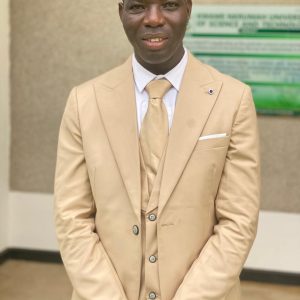
Dr. Suhiyini Issah Alhassan
Dr. Suhiyini Issah Alhassan is a Research Associate at the West African Centre for Shea Innovation and Research (WACSIR), University for Development Studies, Tamale, Ghana. His research focuses on critical issues such as land grabbing, resource conflict, food security, rural livelihoods, multidimensional poverty, climate change adaptation, vulnerability studies, and carbon credits.
Dr. Alhassan has a robust academic portfolio, including 3 published theses, 9 peer-reviewed journal papers, 8 conference paper publications, and 4 book chapters. His work contributes to understanding and addressing the challenges faced by rural communities, particularly in the context of sustainability and resource management. You can explore his research further through his Google Scholar profile: https://scholar.google.com/citations?user=S3ovkEkAAAAJ&hl=en
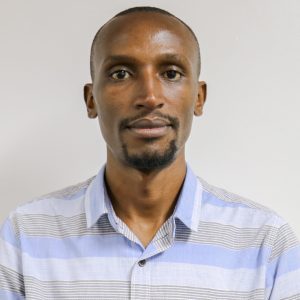
Dr. Paul Nyamweya Nyang’au
Dr. Paul Nyamweya Nyang’au is a consultant at the International Centre of Insect Physiology and Ecology (icipe), specializing in agricultural policy, impact assessment, and food and nutrition security. His methodological expertise includes Contingent Valuation, Multivariate Probit, Propensity Score Matching, and Difference-in-Differences.
Paul has contributed to the field of agricultural economics with 6 published articles, demonstrating his commitment to advancing knowledge and informing policy in agricultural and food security domains.
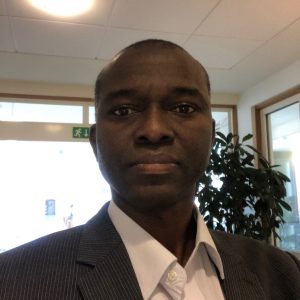
Prof Nnaemeka Andegbe Chukwuone
Prof. Nnaemeka Andegbe Chukwuone is a eminent scholar in Agricultural Economics, specializing in Resource and Environmental Economics. He serves as the Director of the Resource and Environmental Policy Research Centre (REPRC) at Environment for Development (EfD) Nigeria, and is affiliated with the University of Nigeria Nsukka.
Prof. Chukwuone’s expertise includes economic valuation techniques such as the Contingent Valuation Method (CVM) and Choice Experiments, Cost-Benefit Analysis, and Micro-econometric Models. He also possesses a working knowledge of Computable General Equilibrium Models (CGE).
With 45 published works to his name, Prof. Chukwuone has made significant contributions to the field, advancing understanding and policy development in resource and environmental economics.
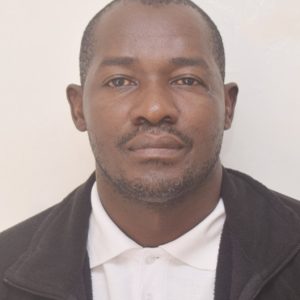
Prof. David Jakinda Otieno
Prof. David Jakinda Otieno is an Agricultural Economist and Associate Professor in the Department of Agricultural Economics, University of Nairobi, Kenya with 17 years of teaching experience. His research interests include Consumer Preference Analysis, Agricultural Marketing/Commercialization, Food & Nutrition Security Analysis, Analysis of Land Leasing, Economics of Climate Change, Livelihood Diversification, Value Chain Analysis, Agribusiness Development, Participatory Research Methods, and Policy Analysis. He has a Ph.D. in Agricultural Economics from Newcastle University, United Kingdom, MSc. in Agricultural Economics from the University of Nairobi, Kenya, and a BSc. in Agricultural Economics from Egerton University, Kenya. He also trained as a Young Professional in Public Policy Analysis at the Kenya Institute for Public Policy Research and Analysis (KIPPRA).
David has expertise in choice modelling, structural equation modelling, and limited dependent variable analysis. He has published 50 articles in peer-reviewed journals, 1 book, 4 book chapters, 2 book reviews, 3 discussion papers, and 4 policy briefs. He has also supervised over 40 postgraduate students at MSc. and Ph.D. level, and serves as an external examiner for various universities across Africa.
He has undertaken consultancy assignments on a wide range of agricultural and economic development issues for various international organizations including the World Bank, International Food Policy Research Institute (IFPRI), International Potato Centre (CIP), International Maize and Wheat Research Centre (CIMMYT) and the African Economic Research Consortium (AERC).
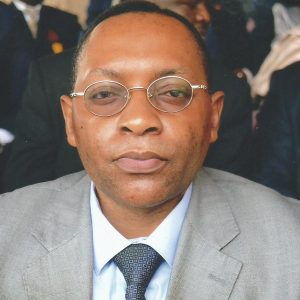
Prof. Ernest L. Molua
Prof. Ernest Molua is a Professor of Agricultural Economics at the University of Buea in Cameroon, with an extensive background in agricultural policy, rural development planning, and environmental economics, particularly in the area of climate change economics. His research focuses on the intersection of agriculture, rural development, and sustainability, addressing critical challenges posed by environmental and economic factors.
With 95 published works, he has made a significant academic impact, reflected in his Google Scholar profile with 2,769 citations, an h-index of 21, and an i10-index of 42. His contributions to the field continue to shape policy and practice in agricultural economics and climate change adaptation.
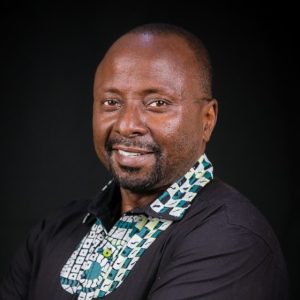
Dr. Fulgence Joseph Mishili
Dr. Fulgence Mishili teaches at Sokoine University of Agriculture and the Head of Department of Agricultural Economics and Agribusiness, College of Economics and Business Studies, Sokoine University of Agriculture. He is Agricultural Economist specializing on Production Economics and Agribusiness Management.
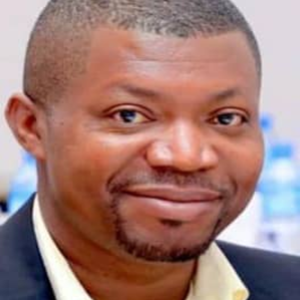
Dr. Emmanuel Abokyi
Dr. Emmanuel Abokyi is an agricultural economist and impact evaluation specialist. He is currently a senior lecturer and management consultant at the Ghana Institute of Management and Public Administration (GIMPA), Ghana. Dr. Abokyi holds in PhD Spatial Economics from the University of Groningen, The Netherlands, and Master of Philosophy degree in agricultural economics from the University of Ghana. Dr. Abokyi also has a BSc degree from the Kwame Nkrumah University of Science and Technology, Kumasi. Dr. Abokyi has being working in consultancy, teaching, and research for over 20 years. Dr. Abokyi has hands on experience in consultancy and research in monitoring and evaluation (M&E) system, food security, impact evaluation, agricultural policy evaluation and analysis, project management, rural development, strategic planning.
Dr. Abokyi also has expertise in economic research, econometric modelling and analysis, survey design and management, and food security programme design and implementation as well as capacity development. He has led the conduct of several agricultural project evaluation assignments. As a consultant, Dr. Abokyi’s clients include the Government of Ghana, Ministry of Finance, Ministry of Food and Agriculture, CARE International, the Canadian Embassy, USAID, Somaliland Government, among others. Dr. Abokyi has been a lead facilitator on several monitoring and evaluation and other training programs that GIMPA has developed for several of its clients.
His research interests include agricultural economics, impact evaluation, food security, farmers’ well-being and happiness, rural finance and development, agricultural economic policy analysis. Dr Abokyi has published over 15 referred journal articles and one book.
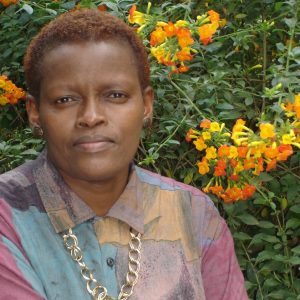
Prof. Cecilia Nyawira Ritho
Prof. Cecilia Ritho is an Associate Professor of Agricultural Economics. She specializes in impact evaluation, technology adoption, efficiency in agricultural production, urban farming, natural resource use, property rights and collective action in development. She is widely published in agricultural technology diffusion, gender and farmer empowerment, urban farming, and economic efficiency.
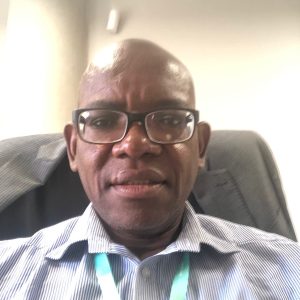
Prof. Ramos Emmanuel Mabugu
Prof. Ramos Emmanuel Mabugu is a Professor of Economics at Sol Plaatje University in South Africa. He earned his PhD in economics from Gothenburg University. He has written 46 articles on economics and economic policy in leading academic economic journals, 14 book chapters, 30 peer reviewed working papers/Occasional Papers and numerous articles in popular press such as The Conversation.
Ramos has been a consultant for many international organisations as well as advising governments on economic matters. Prior to current position, he headed the research and policy division at the Financial and Fiscal Commission and lectured at Universities of Pretoria and Zimbabwe having started his early career as a banker with Standard Bank. His areas of expertise are economywide modelling, micro-macro simulation modelling, development economics, public economics, environmental and resource economics in Africa.
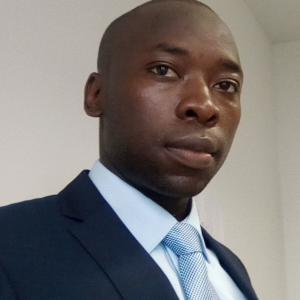
Dr. Haruna Sekabira
Dr. Haruna Sekabira works as a Value Chains and Food Systems Expert & SOMOUD Project Manager – at WFP Sudan. He specializes in Agricultural Economics with specific experiences in Rural Development, Circular Bioeconomy, Food Systems, Value Chain Analysis and Development, Programme and Policy, Food & Agricultural Policy, Agricultural Technological adoption, Food Security, Nutrition Security, Gender, Mobile phones adoption in Agriculture, Climate change adaptations and Mitigation, Food systems resilience and sustainability.
Dr. Sekabira has extensive econometric skills in managing Panel data modelling, OLS modelling, & Choice modelling. He has published widely in his areas of specialization.

Dr. Beatrice Muriithi
Dr. Beatrice Wambui Muriithi has a PhD in Development Economics and a Scientist with icipe’s Social Sciences and Impact Assessment Unit for over 9 years. Beatrice contributes to various socio-economic-related activities in several projects and programs in the Animal, Plant, and Environmental Health Themes of icipe. Her research focus on providing gaps and evidence on inclusive technology adoption and social, economic, and environmental impacts among agricultural communities in Sub-Saharan Africa (SSA), using a wide range of quantitative and qualitative research methods and approaches. Beyond measuring the livelihood’s contribution technologies, Muriithi’s research has endeavoured to uncover the role of heterogeneities at household and community levels that may enhance or hinder technology adoption. She has achieved this by capturing gender-desegregated information to explain gender gaps in technology uptake, as well as applying women empowerment in agriculture tools to capture progress of projects towards women empowerment. Her contribution to gender and inclusive research for instance has been recognized through awards such as the “Science by Women: Programme for Women, Science, Technology, and Innovation in Africa”, the “Structural Transformation of African Agricultural and Rural Spaces (STAARS)” and the “Gender Responsive Agriculture Systems Policy (GRASP) (2022-2023) fellowship”.
Dr. Muriithi has also contributed significantly to the adoption and impact of integrated pest management (IPM) discourse in Eastern and Southern Africa. Her socioeconomic research contribution in this field demonstrates the economic gains of various value chain actors in terms of income, reduced pre- and post-harvest losses and chemical expenditures as well as health and environmental benefits. She has also analysed the returns associated with use of biological control practices among the resource-constrained horticultural farmers in SSA. Beatrice also works on livestock health, beekeeping, and pollination services and their integration with IPM practices. Her work in animal health is fundamental to icipe as it highlights the economic importance of major livestock production constraints such as tsetse and trypanosomiasis. She has a strong publication record of over 40 articles, with a H-index 16 (Google Scholar). She has also contributed to various book chapters, policy briefs and presented her work in various national and international platforms.
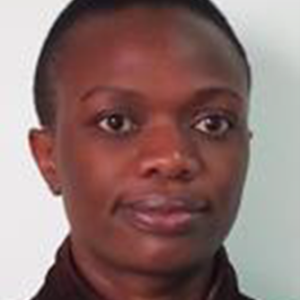
Dr. Esther Mujuka
Dr. Esther Mujuka is an agricultural economist and a part-time lecturer at the Department of Agricultural Economics, University of Nairobi. She holds a Ph.D. in Agricultural Economics from the University of Nairobi, Kenya. Her expertise and research interests include ex-ante and ex-post impact evaluations, producer and consumer behaviour particularly around Willingness to Pay (WTP) for agricultural innovations, food security, development of protocols and estimation of postharvest losses. In her research, she has employed the following modelling techniques: Economic surplus, Tobit, Double hurdle and endogenous switching regression. Dr. Mujuka biennially tracks the competitiveness of Kenya’s seed industry for The African Seed Access Index (TASAI) Programme. Her work has been disseminated through 6 peer reviewed journals and 2 policy briefs. She has undertaken consultancy assignments on a wide range of agricultural research and development issues for various international organizations including the International Centre of Insect Physiology and Ecology (ICIPE), SNV Netherlands Development Organisation, the Food and Agriculture Organization of the United Nations (FAO), the International Maize and Wheat Improvement Center (CIMMYT), the Rockefeller Foundation, the World Resources Institute (WRI) and the Bill and Melinda Gates Foundation.
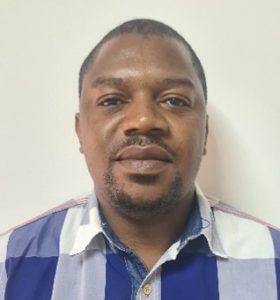
Dr. Kelvin Mulungu
Impact evaluation, resource economics, development economics, panel data econometrics

